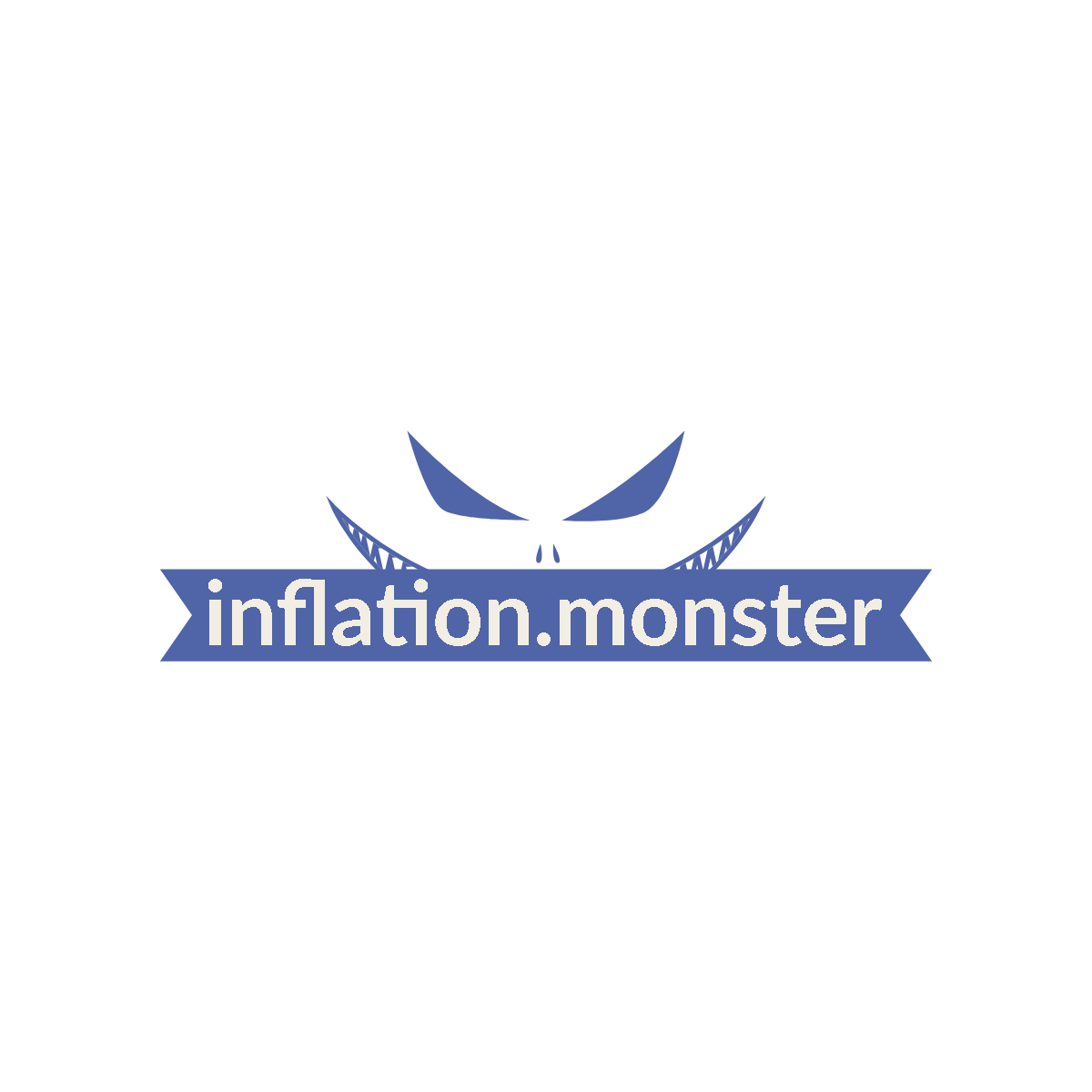Picture this: a bustling marketplace, filled with eager buyers and sellers, all frantically trying to outdo one another in the pursuit of profit. The air is electric with anticipation, as each participant weighs the risks and rewards of their next move. Welcome to the world of market speculation, where the slightest fluctuations can send shockwaves through entire economies. But what drives this frenzy? Is it pure logic and rational decision-making, or is there something deeper at play? In this article, we explore the intriguing relationship between inflation and the psychology of market speculation, uncovering the hidden forces that shape our financial landscape. Join us as we shed light on the mysteries of this complex dance between supply, demand, and human behavior.
Understanding Inflation
Definition of inflation
Inflation refers to the sustained increase in the general level of prices for goods and services in an economy over a period of time. It is often measured by calculating the percentage rate of change in the consumer price index (CPI). Inflation erodes the purchasing power of money, as the same amount of money can buy fewer goods and services.
Types of inflation
There are different types of inflation, each with its own causes and implications. One common type is demand-pull inflation, which occurs when demand for goods and services outpaces the supply, leading to an increase in prices. Cost-push inflation, on the other hand, occurs when the cost of production rises, causing businesses to pass on these increased costs to consumers through higher prices. Another type is built-in inflation, which occurs when workers expect prices to rise and demand higher wages, leading to a wage-price spiral.
Causes of inflation
Inflation can be caused by various factors. Expansionary fiscal and monetary policies, such as increased government spending and low interest rates, can lead to an increase in the money supply, which can in turn drive up prices. Supply shocks, such as natural disasters or disruptions in the supply chain, can also cause inflation by reducing the availability of goods and services. Additionally, inflation can be influenced by expectations and psychological factors, as market participants’ beliefs and behaviors can impact the economy’s overall price levels.
Impact of Inflation on Market Speculation
Inflation’s effect on investor behavior
Inflation can have a significant impact on investor behavior. When inflation is high or expected to rise, investors may become more cautious and seek to protect the purchasing power of their wealth. This can lead to increased demand for inflation hedges, such as commodities, real estate, or stocks of companies that are expected to perform well during inflationary periods. On the other hand, investors may reduce their exposure to fixed-income investments, such as bonds, as the higher inflation erodes the value of fixed interest payments.
Risks and opportunities during inflation
Inflation presents both risks and opportunities for market speculators. On one hand, inflation can erode the value of investments in traditional assets and pose challenges for investors. However, it can also create opportunities for those who can correctly anticipate the impact of inflation on specific sectors or assets. For example, investors may seek out companies that have pricing power and can pass on increased costs to consumers. Additionally, investments in inflation-protected securities or commodities can provide a hedge against inflation and potentially generate positive returns.
Inflation and market volatility
Inflation can also contribute to increased market volatility. Uncertainty about future inflation levels can cause investors to reassess their portfolio allocations and trading strategies, leading to heightened market swings. This volatility can create both challenges and opportunities for speculators, as it can result in larger price movements that can be exploited for profit. However, it can also increase the risks associated with speculative trading, as sudden market shifts can lead to significant losses if positions are not managed effectively.

The Role of Expectations in Market Speculation
The role of psychology in shaping market expectations
Psychology plays a crucial role in shaping market expectations. The beliefs and emotions of market participants can influence their views on future economic conditions and ultimately impact their investment decisions. For example, if investors expect inflation to be high, they may allocate their resources accordingly by favoring assets that are expected to fare well during inflationary periods. The collective expectations of market participants can create self-fulfilling prophecies, as their actions based on these expectations can drive market prices and economic outcomes.
Herd mentality and its influence on speculation
Herd mentality refers to the tendency of individuals to follow the actions and beliefs of the majority, often without fully evaluating the information or rationale behind those actions. In the context of market speculation, herd mentality can drive investors to make decisions based on the actions of others, rather than conducting their own thorough analysis. This behavior can lead to market bubbles or crashes, as the collective actions of the herd can push prices to unsustainable levels or trigger panic selling.
Market sentiment and its impact on prices
Market sentiment refers to the overall feeling or mood of market participants towards a particular asset, sector, or the market as a whole. It is influenced by various factors, such as economic indicators, news events, and investor sentiment surveys. Market sentiment can impact prices, as positive sentiment can drive demand and push prices up, while negative sentiment can lead to selling pressure and result in price declines. Speculators closely monitor market sentiment to identify potential opportunities for profit, as sentiment shifts can create buying or selling opportunities.
Behavioral Biases in Market Speculation
Anchoring bias and its effects on decision-making
Anchoring bias refers to the tendency of individuals to rely heavily on the first piece of information encountered when making decisions, even if it is irrelevant or of little importance. In market speculation, anchoring bias can lead investors to fixate on a particular price level or target, which may not be supported by the underlying fundamentals. This bias can result in missed opportunities or holding onto losing positions for too long, as investors become anchored to their initial expectations.
Loss aversion and risk-taking during inflation
Loss aversion is the tendency for individuals to strongly prefer avoiding losses over acquiring gains of the same magnitude. In the context of market speculation during inflation, loss aversion can lead investors to be more risk-averse and unwilling to take positions that could result in losses. This aversion to losses can prevent investors from fully capitalizing on opportunities that may arise during inflationary periods. Successful speculators understand the importance of managing risk and striking a balance between potential gains and potential losses.
Confirmation bias and its impact on market speculation
Confirmation bias refers to the tendency of individuals to interpret and seek out information that confirms their existing beliefs or expectations, while disregarding or downplaying information that contradicts them. In market speculation, confirmation bias can lead investors to selectively interpret news or data in a way that supports their initial views. This bias can hinder the ability to objectively analyze market conditions and make informed investment decisions. Being aware of confirmation bias and actively seeking out diverse viewpoints can help speculators avoid potential pitfalls.

Cognitive Biases in Market Speculation
Availability bias and its influence on investment choices
Availability bias is the tendency to rely on readily available information or examples when making decisions, rather than considering a broader range of information. In market speculation, availability bias can lead investors to give too much weight to recent or memorable events when assessing investment opportunities. This bias can result in overreacting to short-term market movements or failing to consider relevant historical trends or data. Successful speculators take a more comprehensive and objective approach, considering a wide range of information before making investment choices.
Gambler’s fallacy and its effect on speculative behavior
The gambler’s fallacy is the mistaken belief that past events in a random sequence influence future outcomes of similar events. In market speculation, the gambler’s fallacy can lead investors to believe that a certain asset or trade is more or less likely to be profitable based on recent performance or patterns. This fallacy can result in speculative behavior that is not grounded in sound analysis or rational decision-making. Speculators who understand the fallacy avoid making decisions based on perceived patterns or short-term outcomes, instead focusing on long-term trends and fundamentals.
Illusion of control and its role in market speculation
The illusion of control is the belief that one has more control over outcomes than is actually the case. In market speculation, the illusion of control can lead investors to believe that they have the ability to predict or influence market movements, when in reality, markets are influenced by a complex interplay of various factors. This belief can lead to overconfidence in making investment decisions and excessive risk-taking. Successful speculators acknowledge the limits of control and focus on managing risk, diversifying their portfolios, and making informed decisions based on available information.
Strategies for Speculators during Inflation
Diversification as a risk management tool
Diversification is a risk management strategy that involves spreading investments across different assets, sectors, or geographical regions. During inflation, diversification is particularly important as it can help reduce the impact of price volatility on a portfolio. By investing in a mix of assets that have different risk and return characteristics, speculators can potentially offset losses in some areas with gains in others. Diversification provides a buffer against the uncertainties and fluctuations that inflation can bring, allowing speculators to mitigate risk and potentially maximize returns.
Adapting investment strategies to inflationary environments
Inflationary environments require speculators to adapt their investment strategies to effectively navigate the market. One strategy is to focus on assets that have historically performed well during periods of inflation, such as commodities or stocks of companies in sectors that can pass on increased costs to consumers. Another approach is to actively manage portfolio allocations, adjusting exposure to different asset classes or sectors based on changing market conditions. Successful speculators closely monitor economic indicators, inflation expectations, and market trends to identify opportunities and adjust their strategies accordingly.
Timing strategies to maximize returns during inflation
Timing strategies involve attempting to enter or exit positions based on anticipated changes in market conditions. During inflation, speculators may employ timing strategies to maximize returns or minimize losses. For example, speculators may seek to enter positions in assets or sectors that are expected to benefit from inflation before prices rise significantly. Alternatively, timing strategies may involve taking profits or reducing exposure to certain assets as inflationary pressures increase. Timing strategies can be challenging and carry risks, as accurately predicting market movements is difficult. Speculators should carefully consider their risk tolerance and thoroughly analyze market conditions before executing timing-based trades.

Psychological Factors to Consider in Market Speculation
Emotional intelligence and its impact on decision-making
Emotional intelligence refers to the ability to recognize, understand, and manage one’s own emotions and those of others. In market speculation, emotional intelligence can play a crucial role in decision-making. Speculators who have high emotional intelligence are better able to control their emotions, make rational investment decisions, and adapt to changing market conditions. They are less likely to be influenced by herd mentality, panic selling, or fear-driven decisions. Developing emotional intelligence through self-awareness and mindfulness can enhance speculators’ ability to navigate speculative markets successfully.
Self-control and discipline for successful speculation
Self-control and discipline are essential traits for successful speculators. In speculative markets, where emotions and impulses can run high, maintaining self-control is vital. Speculators with self-control can resist the urge to make impulsive trades, stick to their investment strategies, and avoid taking excessive risks. They understand the importance of patience, following a well-defined plan, and not letting short-term market fluctuations dictate their actions. Developing self-control and discipline requires practice, self-reflection, and a commitment to long-term goals.
Overcoming biases and making rational investment choices
Overcoming biases is crucial for speculators aiming to make rational investment choices. By recognizing and actively addressing biases, speculators can make more informed and objective decisions. This involves conducting thorough research, seeking diverse perspectives, and challenging preconceived notions. It is essential to gather and analyze relevant data, consider historical trends, and think critically before making investment decisions. Overcoming biases requires self-awareness, a willingness to be open-minded, and a commitment to continuously improving one’s decision-making process.
Case Studies: Inflation and Speculation
Historical examples of market speculation during inflationary periods
Throughout history, there have been several notable examples of market speculation during inflationary periods. One such example is the stock market boom of the 1920s, which was fueled by easy credit and speculation. The speculation eventually led to the infamous stock market crash of 1929 and the subsequent Great Depression. Another example is the housing market bubble in the mid-2000s, where speculation and inadequate risk management contributed to a market crash and global financial crisis. These historical case studies serve as important reminders of the risks and potential consequences of excessive speculation during inflationary periods.
Lessons learned from past speculative bubbles
Past speculative bubbles provide valuable lessons for market speculators. They highlight the importance of sound risk management, diversification, and avoiding excessive leverage. Speculators should be cautious of relying solely on short-term momentum or rumors, as these factors can contribute to market exuberance and subsequent crashes. Lessons also underscore the need for rational decision-making, thorough analysis of market conditions, and a long-term perspective. By learning from past mistakes and adopting a disciplined approach, speculators can better position themselves to navigate speculative markets successfully.
Successful and failed speculation strategies in the face of inflation
History has witnessed both successful and failed speculation strategies in the face of inflation. Successful speculators during inflationary periods often exhibit patience, adaptability, and a deep understanding of market dynamics. They carefully analyze economic indicators, inflation expectations, and sector-specific trends to identify opportunities. Failed speculation strategies often involve excessive risk-taking, overreliance on short-term gains, and ignoring warning signs. Learning from both successful and failed strategies can help speculators refine their approach and improve their chances of success during inflationary periods.
The Importance of Financial Education in Speculation
Understanding inflation and its correlation with market speculation
Financial education is crucial for speculators to understand the correlation between inflation and market speculation. By gaining a solid understanding of inflation, its causes, and its impact on various asset classes, speculators can make more informed investment decisions. Financial education helps speculators recognize the risks and opportunities associated with inflation and develop strategies to mitigate risk and maximize returns.
Educating investors on behavioral and cognitive biases
Financial education plays a vital role in educating investors about behavioral and cognitive biases that can influence their decision-making in speculative markets. By raising awareness about these biases, investors can recognize when they may be prone to biased thinking and develop strategies to overcome them. Understanding behavioral and cognitive biases enables investors to make more rational and objective investment choices, reducing the potential for costly mistakes.
Promoting informed decision-making in speculative markets
Financial education promotes informed decision-making in speculative markets. By providing speculators with knowledge about market dynamics, risk management techniques, and investment strategies, financial education empowers them to make well-informed decisions. It equips speculators with the tools and skills necessary to navigate speculative markets with confidence and enhance their chances of success.
Conclusion
Understanding inflation and its impact on market speculation is crucial for speculators aiming to navigate speculative markets successfully. Inflation can significantly influence investor behavior, market volatility, and investment opportunities. Behavioral and cognitive biases can also play a significant role in market speculation during inflationary periods. However, by employing effective strategies, considering psychological factors, and continuously improving decision-making processes through financial education, speculators can increase their chances of making rational investment choices and achieving their financial goals in a dynamic and challenging market environment.




